5. Devil in a Blue Dress (1995)
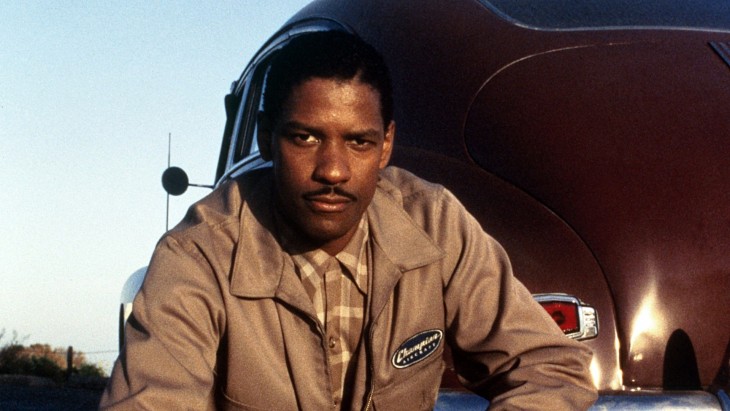
Devil in a Blue Dress is a marvelous exploration of noir tones and motifs. The story takes place in late 1940s Los Angeles. Easy Rawlins (Denzel Washington) is an unemployed World War II veteran with limited job opportunities. At a bar, Easy meets DeWitt Albright (Tom Sizemore), a shadowy man looking for someone to investigate the vanishing of a missing woman named Daphne Monet (Jennifer Beals). Desperately needing money, Easy decides to take the gig, but discovers more than he bargained for.
Like many great noir films, Devil in a Blue Dress drips with atmosphere and mood. The setting itself becomes a character whose role in the movie is just as important as the active players on screen. A cool jazz soundtrack is set over a cynical and gritty landscape of men in vests and snappy hats driving vintage cars and spewing hoppy dialogue. Just from the opening scenes of the film, it is evident that the director, Carl Franklin, knows how to bring the nostalgia of 1940’s noir to life.
While this film may get lost in the shuffle of other noir movies, Devil in a Blue Dress is a must-see that deserves another viewing.
4. The Addiction (1995)
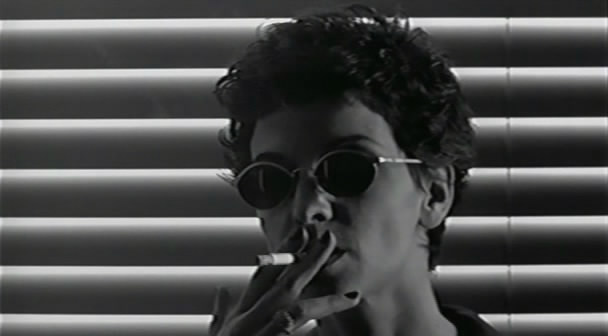
The Addiction is a chilling tale that lingers in audiences’ minds even after the film ends. In the movie, a vampiric graduate student (Lili Taylor) tries to follow the teachings of a nocturnal companion (Christopher Walken) and control her insatiable need for blood.
The Addiction revives the vampire formula by adding its own rules in a ruthless way. Because of these new rules, the movie establishes compelling and substantial stakes to vampirism. For example, vampires are not limited to humans in order to satisfy their bloodlust. Vampires can feed on other creatures of the night. Vampires also do not kill their victims with a bite in this film. Rather, suffering is passed down as people automatically become vampires themselves.
In addition to the vampiric changes, a deeper philosophical nature arises from The Addiction. The story does not shy away from the gruesomeness of vampirism, and it does not show the suave creatures of Ann Rice’s Interview with a Vampire. As an alternative, Kathleen’s prowling of the East Village for nourishment is accompanied with glimpses of such carnage as the Holocaust, the My Lai massacre and other genocides. The dialogue is also filled with references to Heidegger, Nietzsche, and other philosophers to equate vampirism with the imposition of one’s dark desires on humanity.
With intellect and uniqueness, The Addiction provides a fresh take on the nature of vampirism.
3. The Spanish Prisoner (1997)
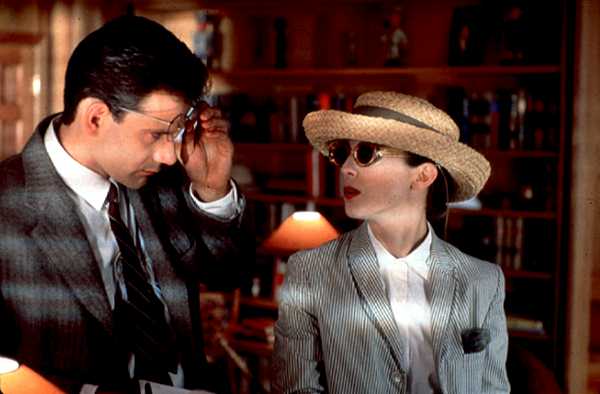
The Spanish Prisoner is an intriguing and unpredictable film that is sure to fascinate viewers. The film follows rising corporate star, Joe Ross (Campbell Scott). While successful, everything changes for Ross when he encounters the mysterious and rich Jimmy Dell (Steve Martin) at a resort. Dell extends an offer to help Ross protect his new business invention, but in short order Ross finds himself wrongly accused of murder. To clear his name, Ross begins working with the FBI and his assistant, Susan (Rebecca Pidgeon), to prove his innocence.
While difficult to do, the Spanish Prisoner acts as a complete piece of sly and artistic filmmaking that never manages to disappoint. The shots by Gabriel Beristain are elegant. The story is full of clues that make audiences want to play along and watch the movie a second time. The editing by Barbara Tulliver also allows for maximum tension, and the whole film is set to an effective and unsettling music score from Carter Burwell.
Lastly, kudos must be given to the acting in the film. The cast, both main and supporting, give fantastic performances. In fact, it is hard to choose an MVP in the cast, but it is Martin who stands out and proves his versatility as an actor. Instead of Martin’s usual laughs, he provides his character with a menacing demeanor that is incredibly believable.
The Spanish Prisoner does what any celebrated film is supposed to do: engage, surprise, and challenge movie-goers.
2. Deep Cover (1992)
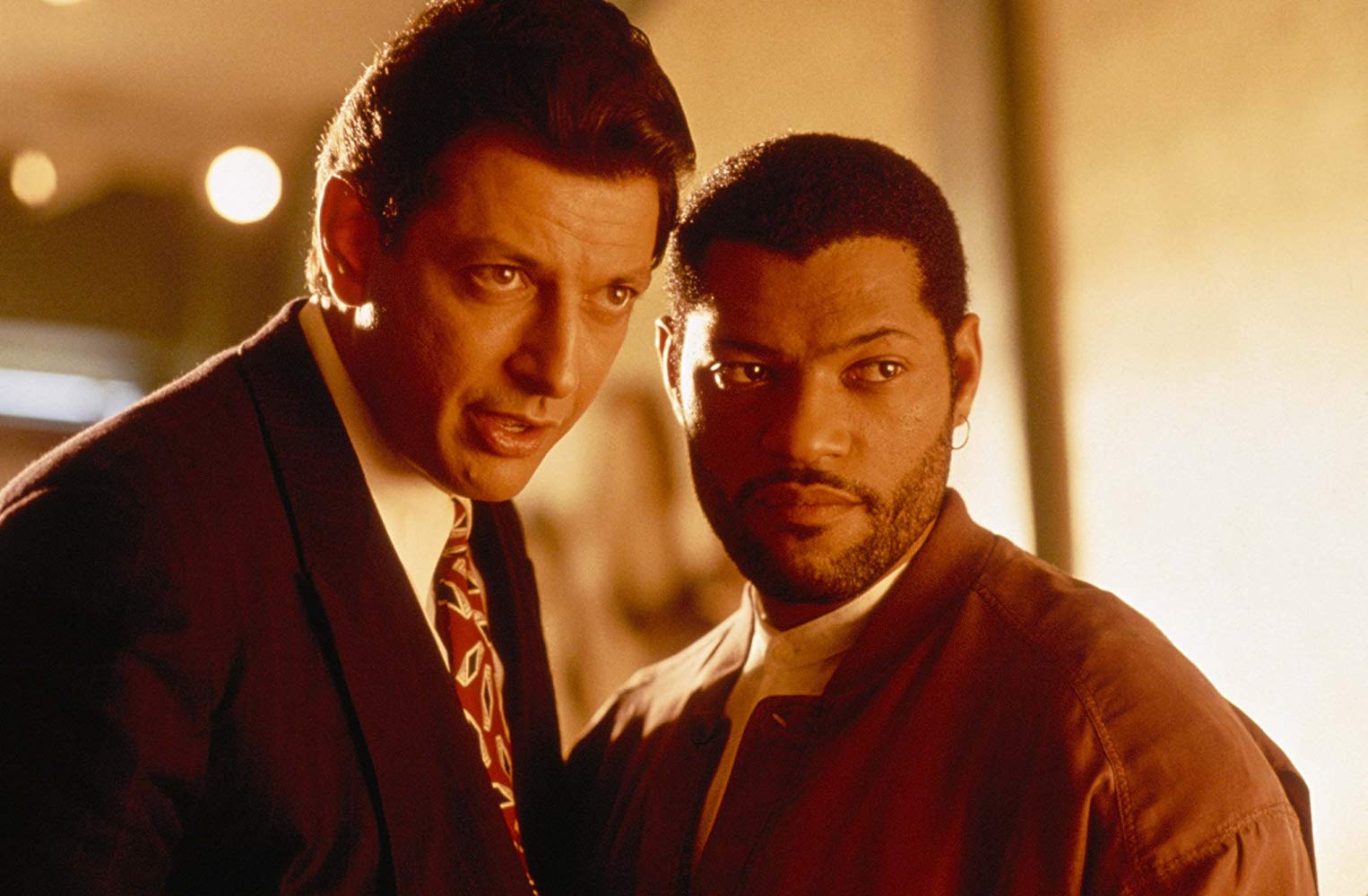
With a hefty amount of thought-provoking cynicism, Deep Cover is a powerhouse thriller that any cinephile can enjoy. The plot centers around David Jason (Jeff Goldblum), a notorious drug dealer in LA, and Russell Stevens (Larry Fishburne), an undercover cop ready to take Jason down. Posing as a dealer, Stevens starts to gain the trust of the L.A. drug world, and eventually makes his way to Jason directly. Along the way, Stevens realizes he must go deeper undercover and consider how far he is willing to go to maintain his persona.
On the surface, Deep Cover may appear as just another adequate thriller, but it is much more than that. The element that elevates the material above passable is the film’s sense of good and evil. Rather than a black-and-white portrayal of what is right and wrong, Deep Cover looks at that blurry line that divides those who enforce justice and those who stray from its strictures. The themes in the film show audiences that the world is not a place where ethics are simple. Instead, integrity is fleeting and fluctuates when survival is involved. By the end of the film, the ethical dilemmas presented provide profound insights, and they unapologetically dispute humanity’s knowledge of traditional morality.
Deep Cover is a stylish and smart film.
1. Happiness (1998)
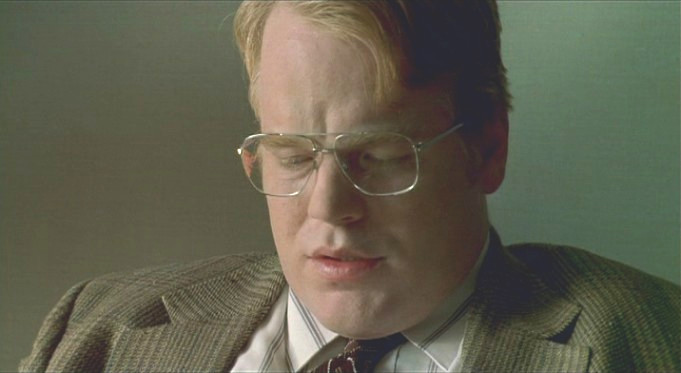
With the movie’s title displaying such hilarious irony, Happiness is a film that any fan of dark comedy should see. This ensemble piece revolves around three sisters. Joy (Jane Adams) is shown as a person devoid of any purpose in her life. Helen (Lara Flynn Boyle) is depicted as a revered poet and becomes fascinated by her perverted neighbor, Allen (Philip Seymour Hoffman). Lastly, Trish is the eldest sister (Cynthia Stevenson), and she is married to Bill (Dylan Baker), a psychiatrist with a disturbing hidden life.
The best words to describe Happiness would be ambitious and perplexing. Happiness mystifies its audience because of all the unexpected, scary, and introspective ideas the film dares to address. Even though the film is called happiness, spectators start to feel uneasy as they begin to understand that the human despair displayed in the film does not symbolize grotesque exceptions, but rather the majority of humanity. Then, audiences’ fears are set aside for brilliant laughs, and the cycle starts all over again. While emotionally complicated, the cycle just mentioned is very cathartic and the exact purpose of gallows humor. Comedy’s origin is misery, and instead of hiding this fact, Happiness embraces this concept wholeheartedly.
While Happiness is not the uplifting story the title promises, the film manages to blend laughs and harsh truths beautifully together.